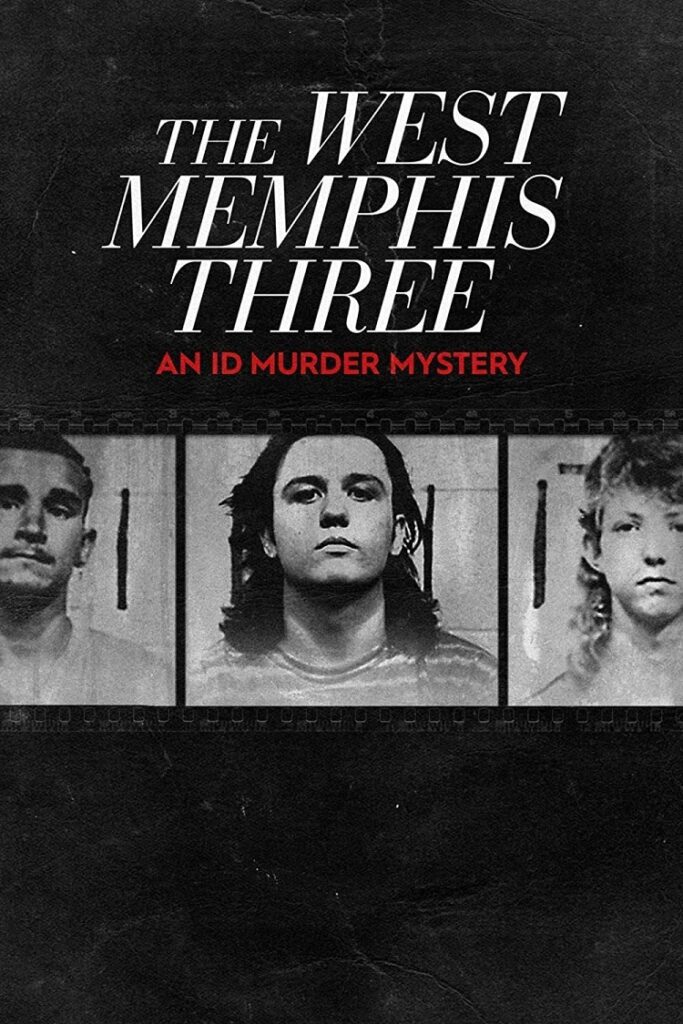
Written by Ram Venkat Srikar
The West Memphis Three: An ID Murder Mystery is a fly-on-the-wall documentary primarily chronicling the court trial of the murder of three eight-year-old boys in Robin Hood Hills, that shook America in the year 1993.
This isn’t the first piece of cinematic documentation based on the tragedy. Well, two tragedies to say. One in the woods, where three young boys were brutally murdered. The second one in the court, where three teenagers were wrongfully convicted. Over the years, there have been three films preceding this three-episode series. Paradise Lost: The Child Murders at Robin Hood Hills, Paradise Lost 2: Revelations, and Paradise Lost 3: Purgatory, directed by Joe Berlinger and Bruce Sinofsky, have documented this case and have made a staggering impact with their potent criticism towards the justice system, with the first film among the series making a strong presence even in this series. Moreover, there’s a plethora of content related to the incident and its judicial aftermath on the internet, thereby posing a challenge to the filmmakers to provide what news and words on the internet cannot. They have only partially succeeded.
Invigorated by the efficacious subject matter, the miniseries predominantly works in keeping the viewers captivated, provided that they are not quite aware of the real incidents it is based on, like me. The incidents are disturbing, to say the least. In May of 1993, three eight-year-old boys – Steve Branch, Michael Moore, and Christopher Byers – belonging to West Memphis, Atlanta, were found dead in the woods. The details of the incident are depressing. The bodies of the boys were found naked, with Christopher’s private parts mutilated. The incident posed a gigantic hurdle to the West Memphis Police Department, as the evidence and clues were minimal.
The case, however, gets interesting (or dumber, if you may feel) when three teenagers – Damien Echols, Jessie Misskelley, Jr., and Jason Baldwin – come under the radar of suspicion on the basis of their weird lifestyle, which suggests inclination towards satanic rituals, which has been the primary point throughout the court case. However, the series never fully leverages the potential of the humanistic facet of the tragedy. The focus is perpetually on the court, the evidence, the satanic rituals, the cult, among other factors that bolstered the system in convicting the three defendants. I discern that’s how the proceedings were. But the series does not need to resemble news coverage of the court trial.
The issue lies in the treatment, which merely feeds shaped and well-structured information that is already existing in the public domain. Among the interviews, Damien’s mother and sister add profundity to the proceedings. When Damien’s mother speaks of the injustice to her son, that’s when you get a glimpse of the emotional trauma people associated with this horrendous crime have gone through. Apart from that, the emotional depth is non-existent. Likewise, we are told how the teenager’s weird lifestyle – which includes liking heavy metal, wearing black clothes, and being part of a cult – was the only significant claim the court had against them, notwithstanding their pleading. However, this facet too – about how three innocents were convicted due to the society’s perception towards them – isn’t explored.
Had the makers chosen a clear perspective to the series – either the defendants’ or the victims’ – the series would have been layered. Nevertheless, in its current form too, it’s engaging enough to keep its viewers hooked throughout its runtime. A recent example of a masterful storytelling, Netflix’s similarly structured How to Fix a Drug Scandal, which covers a drug scandal spanning years while pointing the loose ends of the system, also exhibits the deeply humanistic side of the convicts. With a potent subject matter at its availability, The West Memphis Three: An ID Murder Mystery could have made a lasting impact. Does the series bestow anything more than information? The answer is ‘No’, sadly.